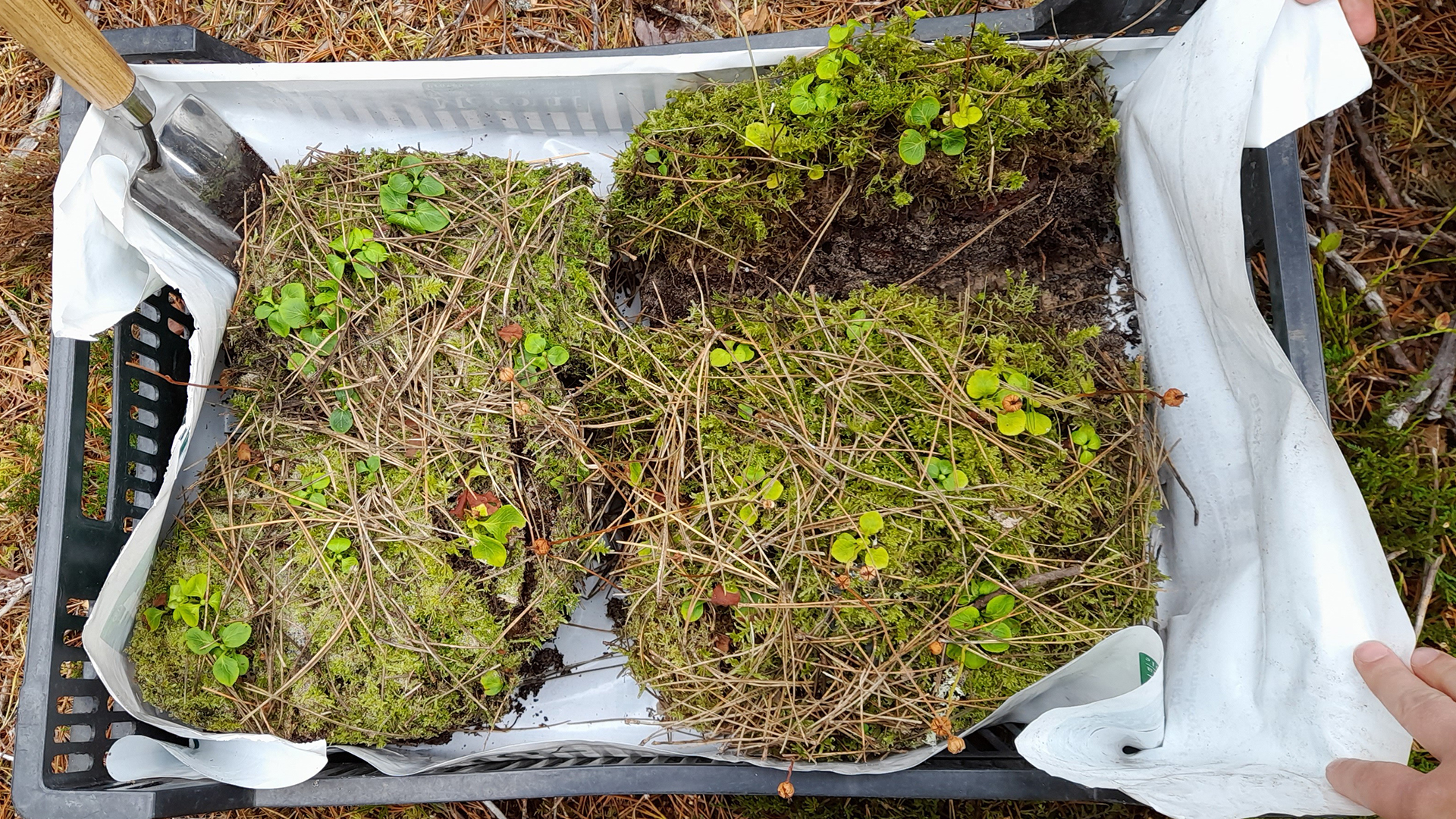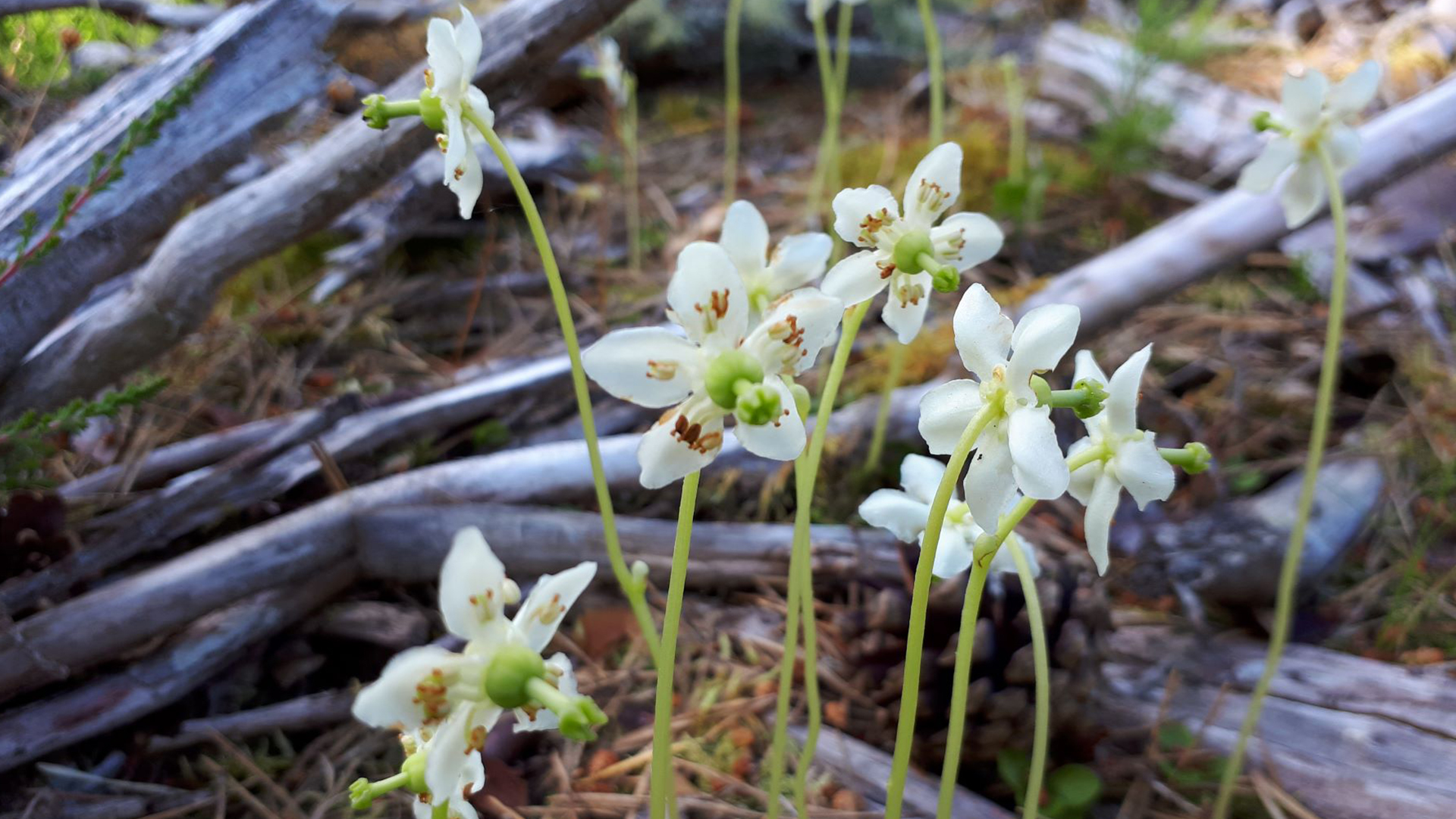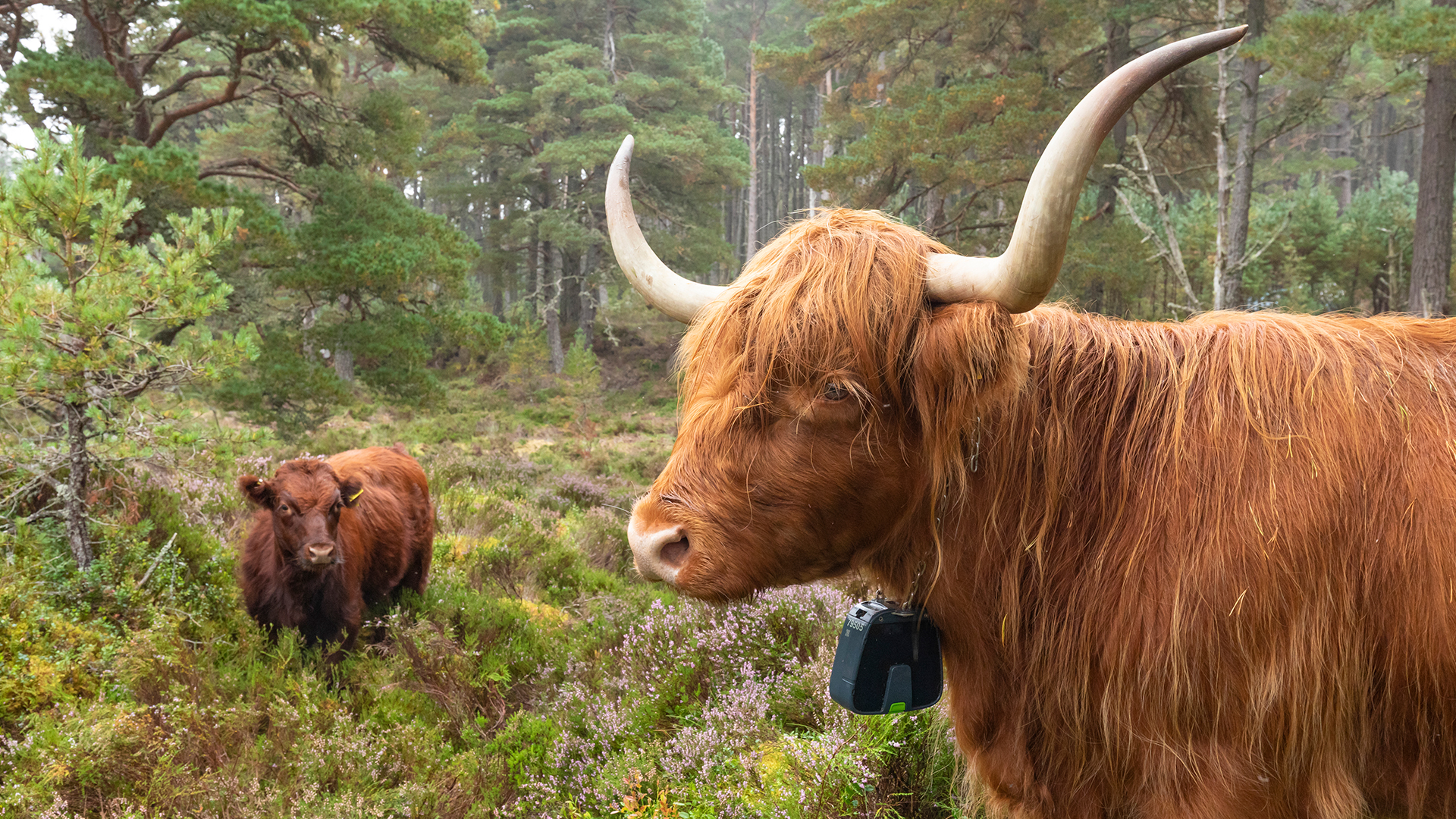

Hope for rare woodland flower as Scottish conservation project is roaring success in the Cairngorms National Park
· The UK’s first ever conservation project for One-flowered Wintergreen has resulted in a 70% survival rate after the crucial first 9 months
· It is estimated that half of UK population of this flower has been lost over last 50 years
· This projects success lays the groundwork for a bright future for Scotland’s rare plant species
The rare and elusive One-flowered Wintergreen (Moneses uniflora), a small flowering plant found in pine woodlands, has defied expectations of Plantlife Scotland and partners in the UK’s first ever project to restore the species.
 One-flower Wintergreen plants carefully collected for translocation. Photo by Sam Jones
One-flower Wintergreen plants carefully collected for translocation. Photo by Sam Jones
One-flowered Wintergreen has seen a 70% survival success rate following a translocation (movement of a species from one location to another) from a secure population of the species, led by Plantlife Scotland. The plants were collected from Roseisle Forest and Old Grantown Wood and translocated to RSPB Scotland Abernethy Nature Reserve, within the Cairngorms Connect partnership area.
The flower has suffered a sharp decline globally and it is estimated that in the last 50 years over half of the UK population has been lost, with only two known remaining patches in the Cairngorms National Park and as few as just seven populations in the whole country.
Instead of relying on photosynthesis to create energy to survive, One-flowered Wintergreen can also take energy from fungus in woodland soils (known as a partial-mycoheterotroph). This complexity means it has been a challenge for conservationists to understand it and help it thrive again.
Alongside the translocation, 12 of the collected plants were sent to the Royal Botanic Gardens Edinburgh for research into the complex fungal interactions that One-flowered Wintergreen relies on to survive.
There have been further breakthroughs in our understanding about the plant during this project. Trials of cattle grazing and invasive species removal in woodland generated a rapid recovery of One-flowered Wintergreen, suggesting this plant might prefer heavily disturbed woodland soils.
 Cluster of One-flowered Wintergreen in the forest. Photo by Sam Jones
Cluster of One-flowered Wintergreen in the forest. Photo by Sam Jones
The pioneering conservation work for One-flowered Wintergreen is part of the Cairngorms Rare Plants project and is a cause for celebration for Plantlife and its partners – RSPB Scotland, Royal Botanic Garden Edinburgh, NatureScot, Forestry and Land Scotland and the Cairngorms National Park Authority.
Sam Jones, Senior Ecological Advisor, Plantlife Scotland, said: “I am thrilled with the success of One-flowered Wintergreen in this translocation – the first of its kind for this species. Translocating a species comes with its challenges, especially when our understanding of the plant is limited, so a 70% survival rate is considered a huge success.
We now hope to do more translocations of One-flowered Wintergreen to allow genetic mixing between populations and to rescue the plants from threatened sites, allowing it to thrive in Scotland once again. Collaborating with partners was vital to the success of this project, and I look forward to continuing our joint efforts for the future of One-flowered Wintergreen and the pine woodlands of Scotland it calls home.”
 Cattle grazing trials at RSPB Scotland Abernethy. Photo by Scotland the Big Picture
Cattle grazing trials at RSPB Scotland Abernethy. Photo by Scotland the Big Picture
Chris Tilbury, Assistant Warden, RSPB Scotland Abernethy, said: “At RSPB Abernethy, we are passionate about saving Scotland’s rare and endangered species. Although our existing colony of One-flowered Wintergreen, one of only a few left in Scotland, had responded positively to recent cattle grazing trials, it remained isolated and vulnerable.
This dynamic translocation project, as part of an exciting partnership led by Plantlife Scotland, has provided the opportunity to strengthen the genetic diversity and increase the abundance of this beautiful plant. Working with our partners from NatureScot, RBGE, FLS and Cairngorms National Park has also been invaluable in terms of exchanging knowledge and sharing best practice, as we aim to secure the future of One-flowered Wintergreen in Scotland’s iconic pine forests.”
Jennifer Baker, Horticulture Student, Royal Botanic Gardens Edinburgh, said: "As a horticulture student at RBGE, participating in the One-flowered Wintergreen translocation project with Plantlife was an honour. Collaborating on this initiative allowed us to uncover crucial insights into the soil microbiome supporting this delicate species. Isolating various types of soil mycorrhizal fungi has paved the way for future research into developing propagation methods to grow and conserve One-flowered Wintergreen.
This work is vital for safeguarding the species from future population declines, and I look forward to further research and collaboration with Plantlife, and the Scottish native Plants section at RBGE."
Through more research and collaboration, Plantlife and partners will manage woodlands holistically, providing a mosaic of habitat for One-flowered Wintergreen in Scottish pinewoods, as well as other rare native species. As we learn how to protect and preserve One-flowered Wintergreen, and by extension the community of other rare true Wintergreen’s, we also learn more about the health of the soils and fungi community of pine woodlands and how best to enhance it in future.
This press release was first released on Parklife’s website here.
Five years of raptor data has been published by WildLand Cairngorms in a new report showing the positive impact of ecological restoration work.
The cold, dark Winter months offer an invitation to pause and reflect. As the year draws to a close, another year towards our 200-year vision, we take time to review the highlights from 2024.